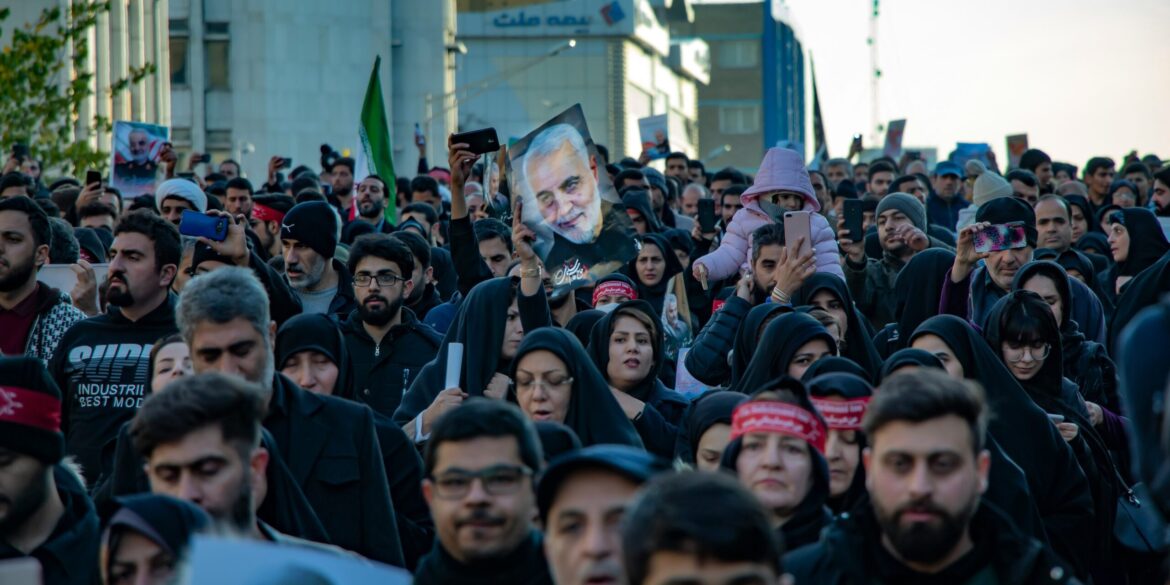In a significant move, former President Donald Trump has vetoed a proposal from Israeli officials to assassinate Iran’s Supreme Leader, Ayatollah Ali Khamenei, a plan that was aimed at crippling Iran’s nuclear ambitions. The proposed operation, which had been under discussion for months, called for the elimination of one of the most influential figures in Iranian politics. However, Trump’s administration, citing concerns over the long-term stability of the Middle East, opted to prevent the strike from moving forward. This decision comes at a time of heightened tensions between the U.S. and Iran, with both sides engaged in a dangerous game of political brinkmanship.
The Israeli plan, developed by military and intelligence officials, was rooted in the belief that eliminating Khamenei would significantly hinder Iran’s ability to advance its nuclear weapons program. Israeli leaders have long expressed concerns about Iran’s nuclear potential, considering it a direct threat to Israel’s security. However, Trump’s veto underscores the complexities of military intervention in the region, especially when it comes to actions that could potentially escalate into a larger, uncontrollable conflict.
Trump’s rejection of the plan, while aligning with his broader “America First” strategy, has been met with both support and criticism from different quarters. Supporters of the decision argue that it was the right call to avoid an all-out war in the Middle East, where tensions are already high due to Iran’s involvement in various regional conflicts and its ongoing standoff with the U.S. over its nuclear program. Critics, however, claim that the move demonstrates a lack of resolve in curbing Iran’s influence and nuclear capabilities, potentially emboldening the regime.
The Trump administration’s position also seems to reflect broader concerns about the U.S.’s role in the region. With American military forces already stationed across the Middle East and tensions with Iran continuing to rise, Trump appears reluctant to deepen U.S. involvement in a region plagued by instability. By rejecting the Israeli plan, he not only avoided a direct confrontation with Tehran but also signaled his reluctance to take actions that could lead to widespread conflict.
Iran, unsurprisingly, has reacted strongly to the developments. Iranian officials have warned that if the U.S. were to take further military action or intervene in the region, they would resume attacks on American military bases, which have been the target of periodic assaults over the past few years. In recent months, the U.S. has been forced to bolster its defenses in the region, with Iranian-backed militias stepping up their efforts to challenge U.S. influence in Iraq, Syria, and beyond.
The rising tensions between the U.S. and Iran have added another layer of complexity to the already volatile geopolitical situation. The two nations have been locked in a bitter conflict since Trump’s decision to withdraw from the 2015 Iran nuclear deal, formally known as the Joint Comprehensive Plan of Action (JCPOA). Since then, the U.S. has imposed severe sanctions on Iran, which has retaliated by ramping up its nuclear activities and increasing support for proxy groups across the Middle East.
This decision by Trump to veto Israel’s proposal is expected to be a key point of discussion at the upcoming G7 summit. World leaders, especially those from European nations that are party to the nuclear deal, have expressed concerns about the increasing risks of conflict in the Middle East. The summit will likely address the wider issue of nuclear proliferation, particularly focusing on Iran’s nuclear program and its implications for global security. Many of the G7 nations have urged both the U.S. and Iran to return to the negotiating table to find a diplomatic solution to the crisis.
This move by Trump also highlights the complex relationship between the U.S. and Israel. While the U.S. has historically been Israel’s closest ally in the Middle East, Trump’s administration was often at odds with Israeli leadership over specific military and diplomatic strategies. Despite the disagreements over the assassination proposal, Israel’s security concerns regarding Iran remain a top priority for the U.S., and this veto will likely spark further debates within both countries’ political circles.
As tensions between the U.S. and Iran continue to simmer, the question of how to manage Iran’s nuclear ambitions remains one of the most pressing issues for the international community. The rejection of Israel’s plan represents a moment of cautious diplomacy, but with no clear resolution on the horizon, it is evident that the situation in the Middle East will remain precarious for the foreseeable future.
The outcome of this latest chapter in U.S.-Iran relations will likely shape the trajectory of Middle Eastern geopolitics in the years to come. How the Biden administration approaches the situation, particularly in relation to the 2015 nuclear deal, will be pivotal in determining the future of regional stability and U.S. influence in the region.

